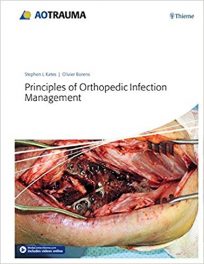 Editors: Kim S. Cameron, and Gretchen M. Spreitzer
Editors: Kim S. Cameron, and Gretchen M. Spreitzer
Publisher: Oxford University Press – 1,076 pages
Book Review by: Sonu Chandiram
Positive organizational scholarship, referred to briefly as POS, became a new field of study in the organizational sciences in 2003, the editors Kim Cameron and Gretchen Spreitzer point out in the Introduction.
This book published in 2012 is a compilation and synthesis of much of the knowledge that has been generated in this distinctive focus of inquiry since then. What you will find in this volume, with an extensive range of subjects and topics, is about what is known, what is not known, and what needs further investigation and study in this relatively new field.
One hundred and forty-nine specialists in various disciplines from the United States and 15 other countries – Australia, Belgium, Canada, France, Germany, India, Israel, the Netherlands, New Zealand, Norway, Portugal, South Korea, Spain, Switzerland, and the United Kingdom – authored the 79 chapters of this thick book.
The chapters are organized around nine Parts, namely:
Introduction: What Is Positive About Positive Organizational Scholarship
- Part One. Positive Individual Attributes
- Part Two. Positive Emotions
- Part Three. Strengths and Virtues
- Part Four. Positive Relationships
- Part Five. Positive Human Resource Practices
- Part Six. Positive Organizational Practices
- Part Seven. Positive Leadership and Change
- Part Eight. A Positive Lens on Problems and Challenges
- Part Nine. Expanding Positive Organizational Scholarship
Conclusion: A Path Forward – Assessing Progress and Exploring Core Questions for the Future of Positive Organizational Scholarship
This Handbook primarily does the following – it:
- Clarifies the definition of POS
- Takes special care to define what is, and what is not meant by the term ‘positive’.
- Describes the history and development of this area of scientific inquiry
- Explains why research in POS is so important as a scientific endeavor
Positive organizational scholarship seeks to understand what represents the best of the human condition based on scholarly research and theory. It focuses on the dynamics in organizations that lead to the development of human strength, foster resiliency in employees, enable healing and restoration, and cultivate extraordinary individual and collective organizational performance.
POS research answers questions such as:
- What elevates individuals and organizations, and what challenges them?
- What goes right in organizations, and what goes wrong?
- What is life-giving in organizations, and what is problematic or life-depleting?
- What is experienced as good, and what is objectionable?
- What is inspiring, and what is difficult or arduous?
This field of study looks closely at the enablers and the motivators and their remarkable positive effects in organizations, while not ignoring the behaviors dysfunctional members of organizations. It investigates how they are facilitated, what makes them work toward goals, how to identify them and how organizations can capitalize on their strengths for the common good.
The editors write in their Introduction that “this Handbook is intended to be the ‘go-to’ place for scholars and others interested to learn about POS.
Let us take a closer look at Part Eight – A Positive Lens on Problems and Challenges. This section contains eight chapters, from chapter 64 through 71:
- Managing the Unexpected
- Healing After Trauma
- Organizational Recovery
- Responding to Crisis
- Resiliency under Adversity
- Posttraumatic Growth
- Ambivalence
- Responding to Stress
Each chapter begins with a boxed area containing an Abstract and Keywords. As an example, in chapter 66 – Organizational Recovery – the authors Sabine Sonnentag, Cornelia Niessen, and Angela Neff write in the Abstract:
“This chapter gives an overview of research on work-related recovery processes. Recovery can be conceptualized as a process that reverses the strain process and that restores well-being. This chapter focuses on the question of how recovery processes improve positive affective states, work engagement, and job performance. The chapter stresses that it may not only be important to gain distance from negative work experiences, but also to capitalize on positive work events and experiences.”
The Keywords in this chapter are: Recovery, restoration, positive effect, work engagement, job performance, proactive behavior, and psychological detachment.
Here is an outline of this chapter, including topics and subtopics discussed in it:
Abstract
Keywords
Topics, Subtopics, and Research Findings
- Recovery Concept
- Theoretical Approaches
- Recovery Activities and Recovery Experiences
- Activities
- Experiences
- Sleep
- Outcomes of Recovery Processes
- Positive Affective States
- Between-Person Studies
- Within-Person Studies
- Motivational States
- Between-Person Studies
- Within-Person Studies
- Performance-Related Outcomes
- Between-Person Studies
- Within-Person Studies
- Positive Affective States
- Beyond Recovery: Capitalizing on Positive Work Experiences
Conclusion: Future Directions
The authors conclude: “The empirical research summarized in this chapter clearly demonstrates that recovery is related to positive affective as well as motivational states, and that it is associated with performance outcomes.”
References
This is a pioneering book in the relatively new (since 2003) field of psychological inquiry on how to achieve positive outcomes in organizations. It is based on extensive research, which gives it enormous value.
Editors:
Kim S. Cameron is William Russell Kelly Professor and Organization at the Ross School of Business, and Professor of Higher Education at the School of Education at the University of Michigan. His past research on organizational effectiveness, downsizing, culture, and the development of leadership competencies has been published in more than 120 academic articles and 14 scholarly books.
His current research focuses on the virtuousness of and in organizations and their relationships to organizational performance. He is one of the co-founders of the Center for Positive Organizational Scholarship at the University of Michigan, and consults with organizations throughout the United States, Europe, Asia, South America, and Africa.
Gretchen M. Spreitzer is Area Chair and Professor of Management at the Ross School of Business at the University of Michigan, where she also received a PhD. Gretchen’s research focuses on employee empowerment and leadership development, particularly within a context of organizational change and decline.
Her most recent work is looking at positive deviance and how organizations enable employees to flourish. This work fits within a larger effort at Michigan Business School to develop a Scholarship of Positive Organizing that is dedicated to understanding how work organizations contribute to the development of human strengths and weaknesses.







